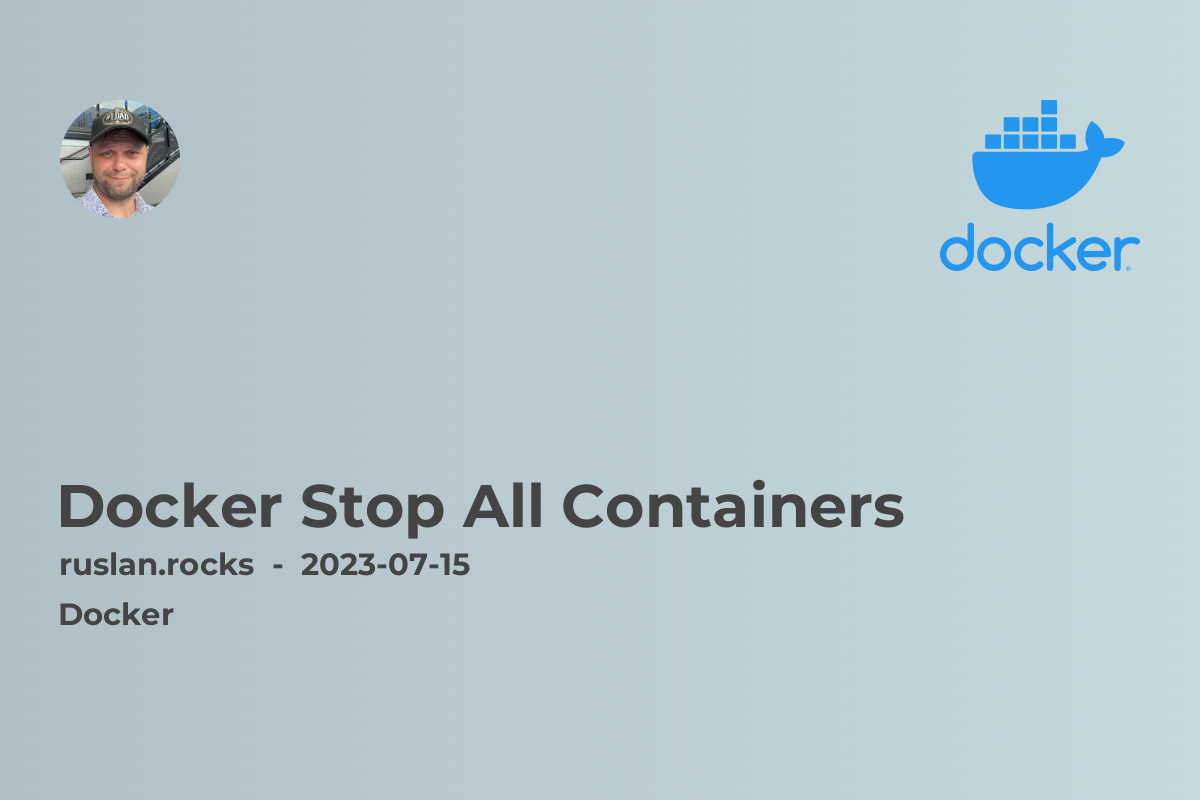
Docker has become a popular choice for containerization due to its efficiency and ease of use. However, when working with multiple containers, it can become challenging to manage them all efficiently. In this article, we will explore how to stop all Docker containers at once, simplifying your Docker management process.
Stopping Docker Containers in One Go
To stop all Docker containers at once, you can make use of a single command: docker stop $(docker ps -q). Let's break down what this command does:
- The
docker pscommand lists all the running containers. - The
-qflag is used to extract only the container IDs. - The
$(docker ps -q)part of the command is enclosed in$(...), which allows the output ofdocker ps -qto be passed as an argument to thedocker stopcommand.
Running this command will stop all the running containers on your Docker host. It offers a quick and effective way to halt all your containers without having to stop each one individually.
Benefits of Stopping All Containers at Once
Stopping all Docker containers simultaneously provides several practical benefits:
- Efficiency: Instead of manually stopping each container, you can stop them all in one go, saving time and effort.
- Resource Management: By stopping all containers together, you can ensure that system resources are freed up, improving overall performance.
- Convenient Maintenance: Stopping all containers simultaneously simplifies maintenance tasks such as upgrades, updates, or troubleshooting activities.
Now that we understand how to stop all Docker containers at once and the advantages it brings, let's delve into how this command fits into your Docker workflow and explore some related topics that might be of interest.
Related Topics
Docker Command Not Found: Troubleshooting Tips
If you encounter the error bash: docker: command not found or ZSH: command not found: docker, it can be frustrating. Luckily, we have troubleshooting tips to resolve this issue. Find out more in our article bash: docker: command not found and ZSH: command not found: docker.
Starting the Docker Daemon on Mac OS
Docker requires the Docker daemon to be running in the background to function correctly. If you're having trouble getting it started on your Mac, check out our guide on how to start the Docker daemon on Mac OS for step-by-step instructions.
Advantages and Disadvantages of Container Orchestration
Container orchestration systems such as Docker Swarm and Kubernetes help manage and scale containerized applications effectively. Explore the advantages and disadvantages of different container orchestration platforms in our article on Advantages and Disadvantages of Container Orchestration.
Docker vs. Kubernetes: Choosing the Right Container Orchestration Tool
Both Docker and Kubernetes are popular choices for container orchestration, but they have distinct features and use cases. Dive deeper into their differences and determine which one suits your needs better in our comprehensive comparison article Docker Vs Kubernetes: Which Container Orchestration Tool Should You Choose?.
Managing Microservices with Docker Swarm and Kubernetes
Microservices architecture has gained popularity due to its flexibility and scalability. Discover how Docker Swarm and Kubernetes can effectively manage microservices in our article Managing Microservices with Docker Swarm and Kubernetes.

